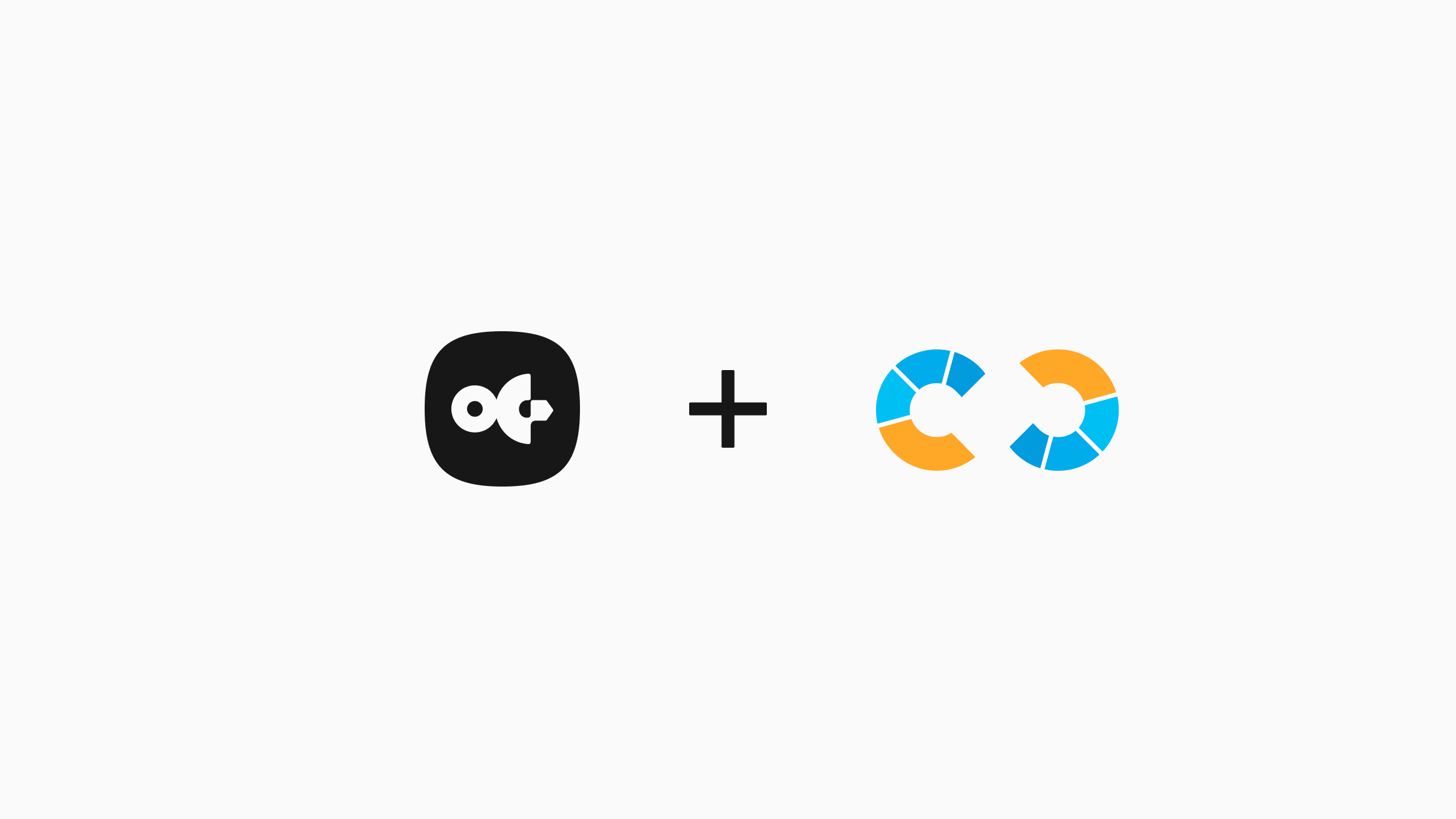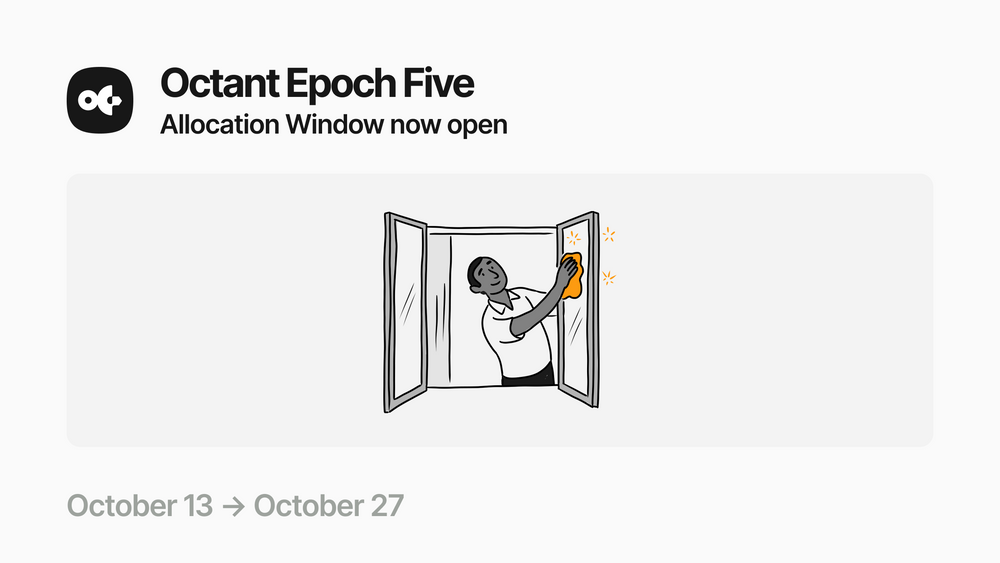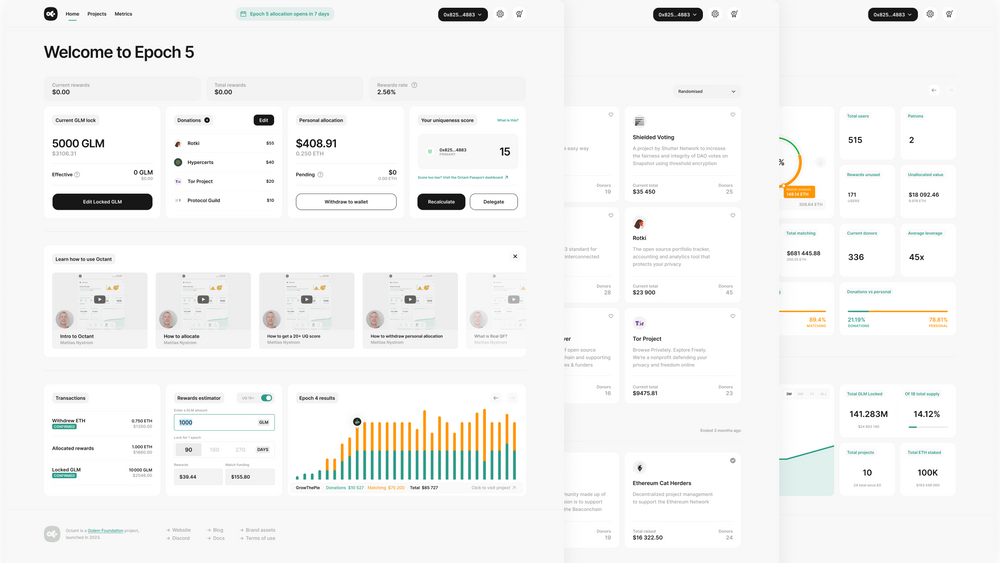At Octant, we're deeply committed to the security and robustness of the Ethereum network. To support our public goods funding initiatives and guarantee recurring rewards for our active users, the Golem Foundation has undertaken to solo stake 100,000 ETH. Our operation of 3,136 validators underscores our commitment to responsible staking practices. In line with this commitment, we have decided to transition our execution client from Geth to Nethermind.
Why Client Diversity and Supermajority Risks Matter
Ethereum's decentralized design relies on multiple, independently developed software clients.
For effective operation, each validator must run two distinct types of clients on their machine: an execution client, which processes transactions, and a consensus client, which ensures agreement across the network. These clients are available from multiple teams, allowing node operators the flexibility to choose from different implementations that adhere to the same standards.
There is a lot of value in client diversity.
- Resilience: A bug in one client has less impact on the network when other clients aren't affected.
- Security: Different clients are less prone to the same vulnerabilities, reducing attack vectors.
- Decentralization: No single client gains too much control over the network.
Conversely, a lack of diversity among clients poses significant risks. When a single client dominates the network, as is the case with Geth, a potential bug takes on catastrophic proportions. We're not simply talking about network resilience; we're talking about a substantial risk for node operators like us.
Recent incidents have highlighted these dangers. In January 2024, a bug in the Nethermind Ethereum client caused users to temporarily lose sync with the chain for a few hours. Fortunately, the Nethermind team's swift action in patching the bug, combined with the client's limited market share, prevented significant damage.
Imagine if a similar bug appeared in a majority client, like Geth:
- Network Split: Geth nodes might generate an invalid chain that, despite being incorrect, would still finalize, effectively splitting the network.
- Inactivity Leak: Validators on the invalid fork would face penalties for their inactivity, leading to substantial losses of ETH over time.
- Risk of Total Loss: In a dire scenario where 66% of the chain is slashed simultaneously, validators could face the total loss of their ETH holdings.
This scenario underscores the critical importance of maintaining client diversity within the Ethereum network.
Octant's Proactive Response
We want to acknowledge the Geth team's outstanding work and their major contribution to Ethereum's success. While Geth has been a reliable client for us, we're taking proactive steps to mitigate the supermajority risk and improve overall network resilience. By switching to Nethermind, we help balance client usage and make the network safer for everyone.
Beyond Octant: A Community-Wide Responsibility
As a major stakeholder, we recognize our role, at Octant, in maintaining Ethereum's health. However, true network security and decentralization demand action from the entire Ethereum community.
If you run Ethereum nodes, we urge you to seriously consider the risks of a dominant client. Prioritize network health and longevity by carefully choosing clients and supporting diversification.
Let's work together to protect the future of Ethereum.



